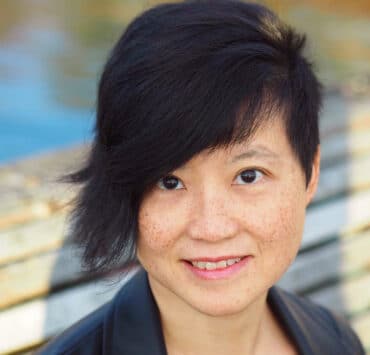|
Getting your Trinity Audio player ready... |
When it comes to leadership or learning, Neema Uthappa refuses to be written off with a definitive no. The Coorg (also known as Kodagu), India, native recalls an early experience of being denied enrollment in an oceanography class while on the engineering track.
“Whenever someone said no, that’s when I would try harder to make it happen,” says the engineering expert, who advocates for others as well, motivating women to make space for themselves in the STEM industries.
At the age of twenty, Uthappa proved herself by applying her oceanography course knowledge to a position in the Indian Navy that called for a skilled engineer who could construct intelligent buildings using data and oceanography.
“I applied and was selected as one of the three top women executive officers for Indian Navy,” she says, adding that very few women had held executive positions there before—not to mention, most of the senior admiral’s direct reports historically had twenty years of service under their belts. But by the second year, with lessons learned, “I saw myself transform to a different person,” Uthappa says.
“Whenever someone said no, that’s when I would try harder to make it happen.”
Neema Uthappa
After eight years in the Indian Navy and an eventual relocation to Arizona, Uthappa consulted for American Express before converting to full time in tech, business, and finance capacities. She even invented and patented two products that could bring on billions in year-over-year revenue, earning her the company’s American Express Genius Medal.
While most people would be satisfied with such an achievement, Uthappa continued to serve in leadership positions at various firms, heading business intelligence, automation, and innovation. McKinsey & Co reached out to the notable engineer in 2017 for a position as its head of engineering: the company was looking to develop its next-gen cloud data analytics capabilities and artificial intelligence.
By then a seasoned and sought-after leader, Uthappa accepted and came aboard ready to face any challenge—literally—because she’s pretty much seen and done it all.
If a team member approaches her with a problem, Uthappa tells them, “I’ve actually worked in six to seven of these nine verticals you have, because I’ve [served at] all of these companies which are so different from each other.” If someone tries to push back and say the solution isn’t possible, she can respond, “Oh, no, I’ve been there, done that. I know how it works.”
Uthappa believes in continuous learning, adaptability, and applying lessons learned from one experience to a new one, no matter how unrelated it may seem. This is especially true in the world of tech, where both “stability and dynamism” are key. “With the way things are changing these days, I also believe it’s important to empower our technologies that can deliver and build a deeper bench to grow the next generation of leaders.”
“I define a mission and then have a road map, even if it means it’s like a dotted line block. The dotted line block could change anytime. But at least people know your vision.”
Neema Uthappa
To do this effectively, Uthappa suggests maintaining a singular vision while the rest evolves. “I define a mission and then have a road map, even if it means it’s like a dotted line block. The dotted line block could change anytime. But at least people know your vision.”
It starts with who is at the table or in the lab. Uthappa is managing director of the board of Girls in Tech Phoenix, an organization she originally joined when scouting talented women engineers for her own hackathon event. She identifies sponsors, organizes and hosts galas, and brings in funds to send girls to coding camps. Uthappa is particularly passionate about supporting single mothers interested in tech by mentoring them, bringing them into the workflow, and following up with them as they embark on tech careers.
She tends to her creative side by serving as a board member of Arizona State University’s Art Museum and through writing. A perfect summary of Uthappa’s career and motto is the very existence of her book, The Cinderella Elephant, a short story collection that she describes as being about “breaking those [preconceived notions] and barriers in your head. It’s mostly for young managers to use their own life experience and through observation and reflection on how to do day-to-day work.”
And that quirky title? It has its own story. Uthappa’s daughter is just as curious and persuasive as her mother, and when she was little, she would ask her mother to make up stories based on a prompted theme. One request was for “the Cinderella Elephant,” an idea that seemed preposterous to Uthappa initially.
Looking back, she wonders, “Why did I brush her off and not make this elephant Cinderella? Was it because I was uncomfortable with the elephant wearing these glass slippers?”
She realized soon after that this was the voice of her own preconceived notions and barriers. Why was this concept unacceptable? “We want certain things to be in a certain way,” Uthappa recognizes. She returned to her daughter and told her the story of the Cinderella Elephant. The book was inspired by this lesson, and in it, she shares how her own barrier removal has helped grow as a person and a leader.

